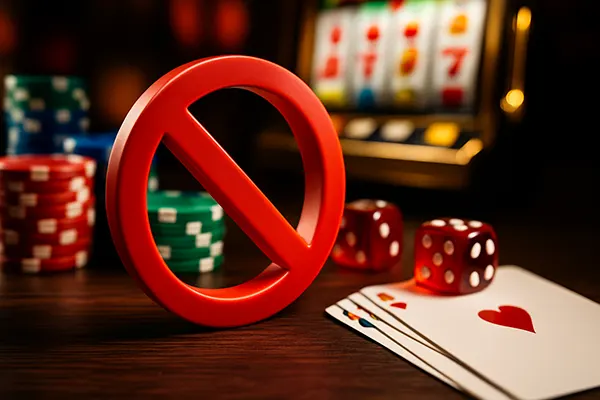
Blacklists of Online Casinos: Formation, Maintenance and Trustworthiness
In the complex landscape of online gambling, not all casinos play fair. To protect players, blacklists have emerged as a vital mechanism to identify and warn about untrustworthy sites. But how exactly do these blacklists work, who creates them, and how much confidence can players place in them? This article explores the nuances of online casino blacklists, providing a comprehensive look into their structure, reliability, and the reasons behind their growing influence in 2025.
How Online Casino Blacklists Are Created
The creation of an online casino blacklist typically follows a rigorous process, where multiple factors are examined before a gambling site is added to the list. Industry watchdogs and independent review teams carry out investigations to identify unethical practices, such as withholding player winnings, lack of valid licensing, or unfair game algorithms.
Casinos are often flagged after repeated complaints from users. These complaints may involve delayed payments, sudden account closures, or unresponsive support. Once a pattern emerges, experts dig deeper, often conducting test transactions to validate the issues. If confirmed, the casino’s name is added to the blacklist as a warning to the public.
Regulatory infractions also play a key role. Many blacklists rely on data from government regulators and licensing authorities. When a gambling site loses its licence or is penalised for breaches of industry standards, it typically ends up flagged as unsafe for players.
Sources and Criteria for Evaluation
Trusted blacklists use transparent and consistent evaluation frameworks. The most credible ones apply criteria such as player protection policies, licensing jurisdiction, payout speed, terms and conditions clarity, and customer support quality. Each of these factors is assigned weight and reviewed over time.
Importantly, many blacklists update their entries periodically. A casino once flagged for malpractice might later improve its operations and regain trust. Conversely, reputable sites can fall out of favour if they start compromising player safety or change ownership.
Third-party watchdogs often share these updates in public reports or newsletters. This helps players remain informed about which sites to avoid and which may be reconsidered.
Who Maintains Casino Blacklists and Why
There are several actors behind casino blacklists, including independent review sites, gambling watchdog organisations, affiliate networks, and individual industry experts. These sources vary in authority, but the most trusted ones tend to be organisations that do not profit directly from casino partnerships.
Affiliate-backed blacklists can be problematic. Some may manipulate their listings to steer traffic toward their preferred partners. Because of this, users are advised to cross-reference information from multiple sources before making decisions based on a blacklist alone.
Conversely, independent review organisations often uphold strict ethical standards. They may employ former regulators or legal consultants to audit gambling operators. These organisations are more likely to maintain objectivity, as their credibility relies on impartial analysis.
Commonly Recognised and Respected Blacklists
Examples of reliable blacklists in 2025 include those maintained by AskGamblers, Casino Guru, and ThePOGG. These sites publish clear guidelines on how casinos are evaluated and provide transparent records of violations.
Additionally, forums such as Casinomeister often contribute to blacklist discussions, offering insights from long-term players and professionals. Their collective knowledge adds depth and context to listings, especially when new rogue operators emerge.
Trust in a blacklist increases when its maintainers are open about funding sources and provide publicly accessible records. Users should prioritise blacklists with such disclosures to avoid bias.

Can Online Casino Blacklists Be Trusted?
Trust in blacklists depends largely on who maintains them and how decisions are made. A credible blacklist will always offer detailed reasoning behind each listing and provide updates when situations change. Blindly trusting any list without context, however, can be risky.
Another important factor is the appeal process. Ethical blacklists allow flagged casinos to submit evidence and request a re-evaluation. This ensures a fair system and avoids permanent reputational damage from false accusations or outdated reports.
Ultimately, while blacklists are a valuable tool for player safety, they should be used alongside personal research, reading user reviews, and verifying licences through official authorities. Informed decisions offer the best protection against unfair gambling practices.
Best Practices for Players
Players should treat blacklists as part of a broader verification toolkit. Before registering with any casino, they should confirm its licensing status, read independent reviews, and explore user feedback across multiple forums.
Using dedicated comparison tools can help verify whether a casino appears on multiple blacklists, which typically indicates a more serious problem. Conversely, if a site appears only on affiliate-controlled lists, caution is advised.
Finally, players should stay updated. The online gambling environment evolves rapidly, and new threats emerge regularly. Subscribing to watchdog bulletins or community forums can help individuals avoid scams and make safer choices.
